
Universities support community learning: A pathway to lifelong learning for all
Latest
In a world where lifelong learning is paramount, universities play an increasingly vital role in community education. They serve not only as institutions for young adults seeking degrees but also as centers of knowledge, culture, and innovation accessible to people of all ages. The active involvement of universities and their faculty in community education initiatives holds the potential to positively transform lives far beyond the confines of their campuses.
However, the stark reality persists: universities' involvement in advancing community education and lifelong learning is far from extensive. Numerous factors contribute to this limitation. Chief among them is the tendency in discussions to hyper-focus on the tangible ways universities can support communities through their resources, neglecting the profound benefits and intrinsic value universities accrue through such engagements. Nevertheless, this relationship is symbiotic, offering substantial rewards for both universities and the communities they serve.
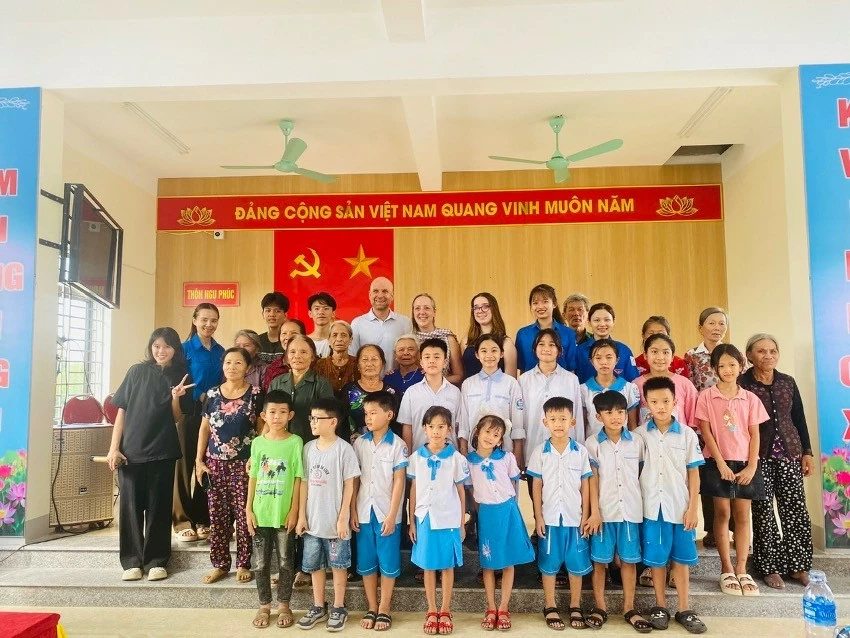 |
| A pathway to lifelong learning for all: Associate Professor Shannon worked with students and local people in HoW. |
An interview with Associate Professor Shannon from the University of Alaska Anchorage (United States), who, alongside his family, has actively participated in both Vietnam and Alaska, sheds light on the profound impact such educational engagement can have on societies.
Forging lasting ties: Lifelong learning unites Alaska and Vietnam
For the past five years, you and your family have visited Vietnam many times to exchange educational and cultural experiences with the House of Wisdom (HoW) communities. The journey from the far north of the United States to this S-shaped land is truly a "thousand-mile" journey. What has inspired your deep connection and frequent returns to our country?
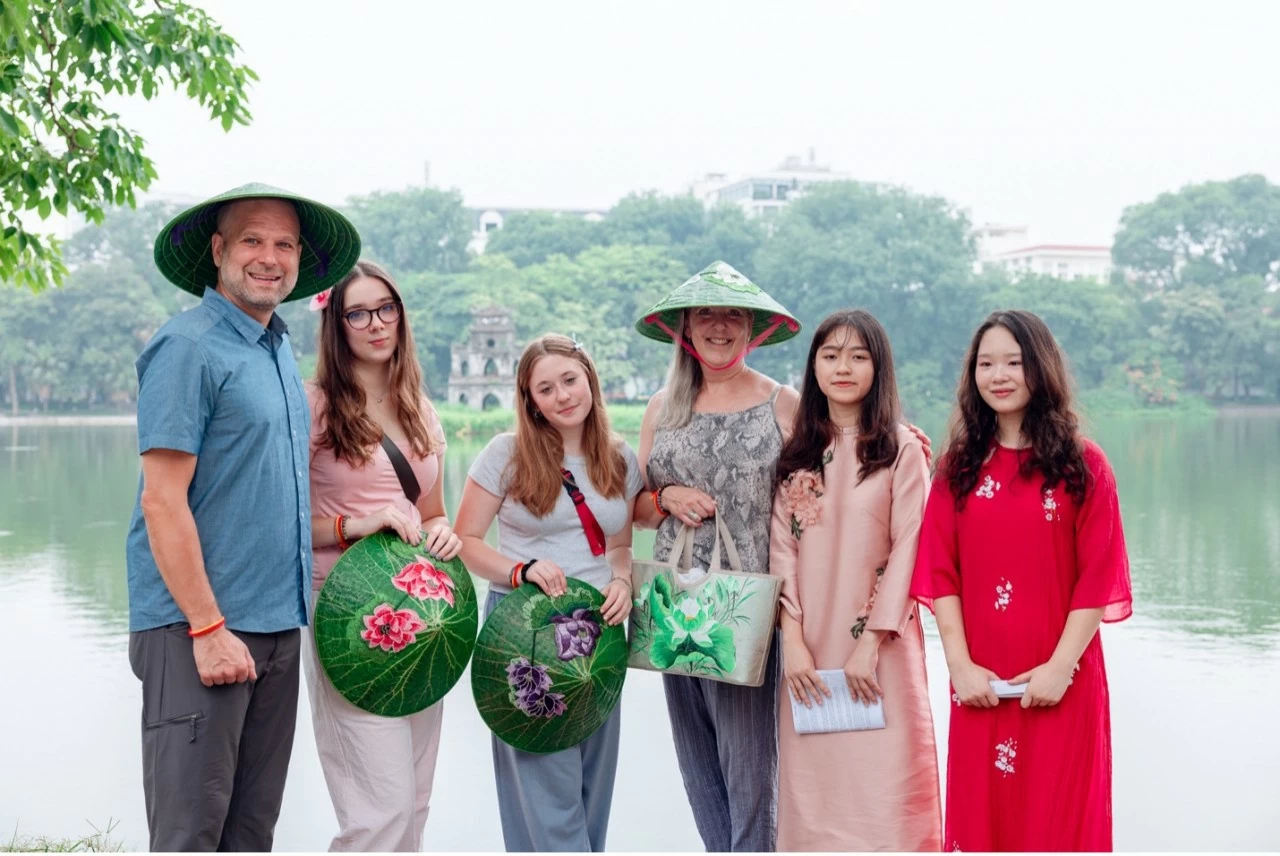 |
| Associate Professor Shannon and his family fall in love with the beauty of Vietnam. |
Yes, each journey covers approximately nine thousand miles and typically requires 25 hours with 3 connecting flights to reach Vietnam. Despite the geographical distance and the inconveniences of travel, our family's excitement and happiness remain undiminished whenever we have the opportunity to return to your beautiful country.
We first came to Vietnam in 2019 when SEAMEO RETRAC in Ho Chi Minh City invited my wife, Professor Sarah Kirk, a specialist in English language education, to help teach, train staff and develop programming. Sarah, our then-11-year-old daughter and I lived in Ho Chi Minh City for a year and traveled extensively around the country. It was an incredible experience and we fell in love with Vietnam.
During this period, we learned about the HoW and Compassion Books-two highly esteemed initiatives promoting reading and education in Vietnam. COVID kept us away for a time, but we returned in the summer of 2022 and have since visited as often as our work in Alaska allows. The warmth of the welcome and the passion of the people we meet keeps us coming back. This experience has also been an important opportunity for professional development.
Our university, the University of Alaska Anchorage (UAA), is in one of the most remote yet culturally diverse cities in the United States. More than 100 languages are spoken in Anchorage, and census data reveals some of our neighborhoods are more representative of global culture than even New York City. Consequently, we strive to develop “intercultural fluency”, the knowledge and skills needed to interact effectively across cultures. UAA students, upcoming leaders and professionals in an interconnected global community, highly value such competency. Therefore, UAA enables my repeated visits to Vietnam and collaboration with the HoW as a component of my teaching and research responsibilities at the university.
My family's bond with Vietnam began by chance, but the joy of lifelong learning - for ourselves, the communities in Vietnam, and my university in Alaska - has strengthened this relationship, propelling it to new heights.
Lifelong learning: Connecting generations and erasing boundaries
Your sharing highlights the significance of community education, offering lifelong learning opportunities to diverse individuals, from university professors and students in developed nations like the United States to local residents and students in impoverished, remote villages of Vietnam. Can you recount a touching experience from your engagement in community activities in Vietnam that vividly illustrates this dynamic?
There are too many cherished memories to pick a favorite, but I’ll recount an unforgettable day in Ha Tinh Province last June. Working on a local history writing project with the HoW, we visited Ke Go Lake with a group of high school students. They had prepared histories of the area and taught us about how this 300 million cubic meter lake was created between 1976 and 1980 for flood control and irrigation. The students explained that thousands of local people, including grandmas, grandpas, girls, and boys, had dug this huge lake by hand. One young guide proudly told us his grandma had been among them. We discussed the lyrics of the famous song “The people who built Ke Go Lake,” noting the imagery of many small brooks flowing together and the song’s roots in Nghe Tinh folk music.
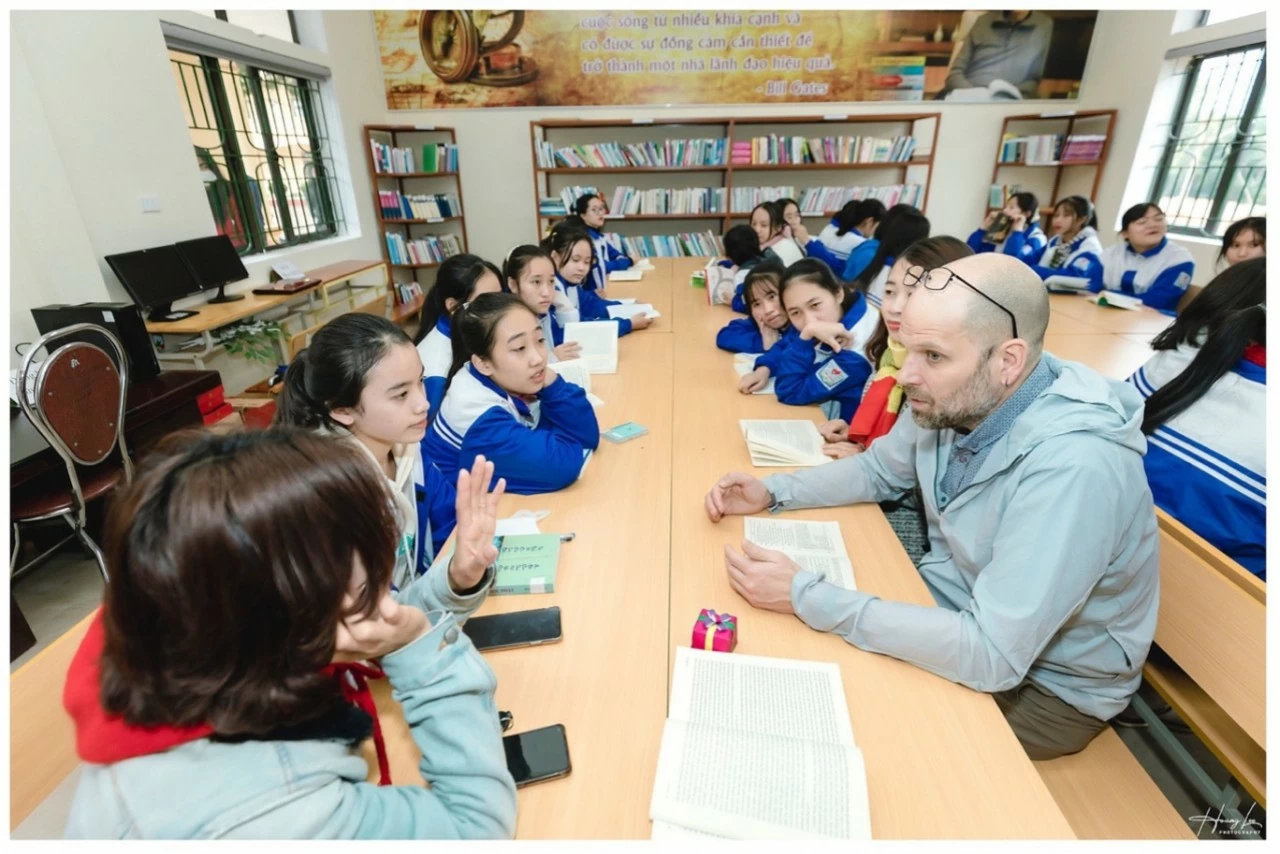 |
| Associate Professor Shannon worked with students in HoW. |
Later, we were driven to a HoW in Cam Vinh. When we arrived, our student guide showed us around the small local museum. The HoW’s assembly hall upstairs was full of about 70 people: students, teachers, parents, farmers, and officials. I began the presentation in my basic Vietnamese, introducing my family and mentioning our visit to Ke Go Lake. I was told that a group of older women in the audience had helped dig the lake 45 years ago. It was amazing to shake their hands and hear more about how Ke Go Lake was made.
After my presentation a soon-to-be high school senior asked for help with his college application essay. He felt his life was relatively uneventful and privileged compared to previous generations. After our conversation, he decided to write about this day, being my teacher and interpreter, and how it awoke a new sense of pride and historical awareness. His newfound goal was to honor the sacrifices of his parents' and grandparents' generations with his own efforts.
So much more than a mere subject of study, history came alive that day. In this example, we also see community education as “a two-way street,” teachers become students and students become teachers, and everyone, maybe the community most of all, gains. I will never forget that experience.
Community education in Alaska: A core component for development
We've just delved into your community engagement endeavors in Vietnam. Now, turning to your hometown - Anchorage, Alaska. Could you provide insight into the community policies and practices in your university in particular and Alaska in general?
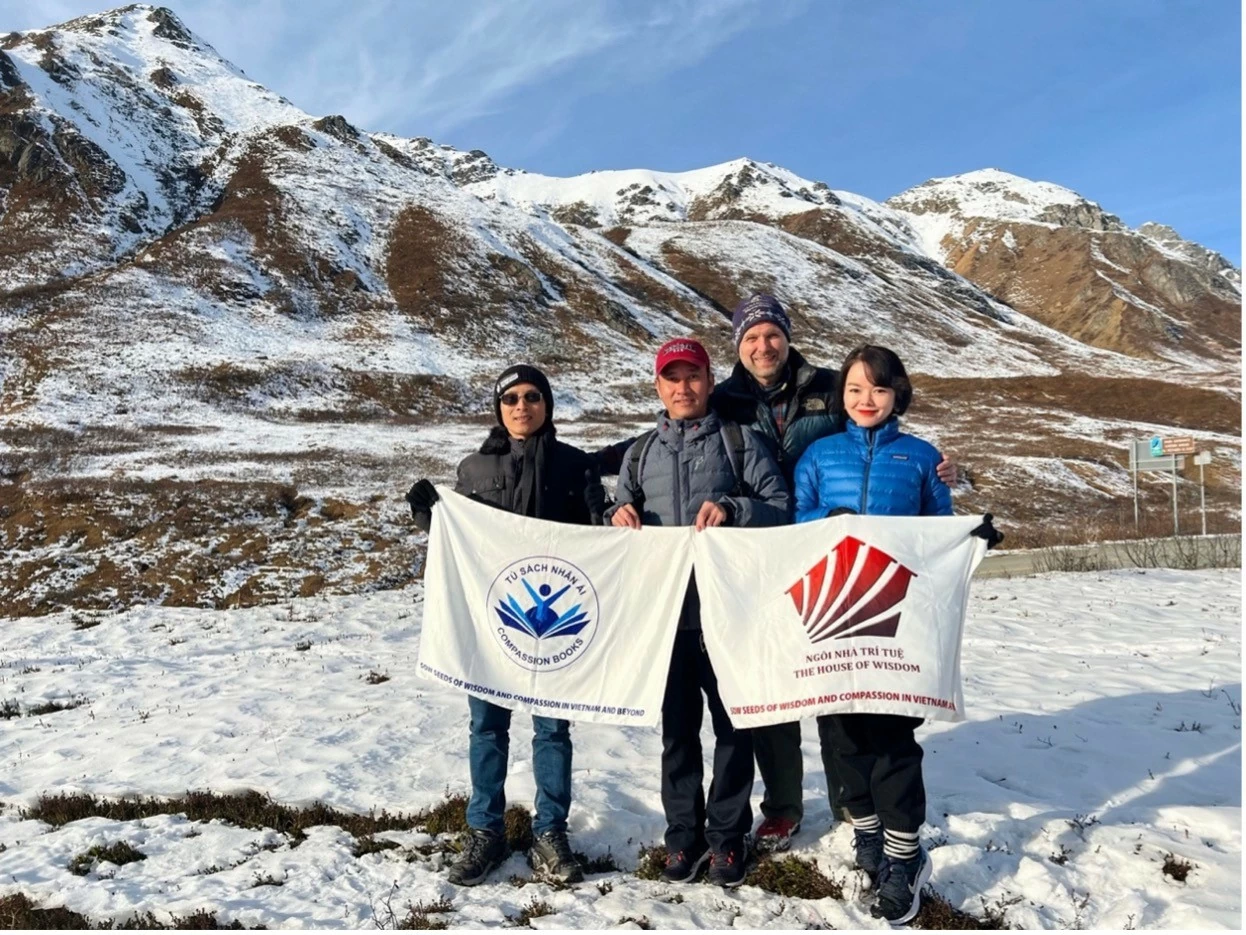 |
| Associate Professor Shannon and the HoW delegation explore the culture and history of the majestic land of Alaska. |
Yes, community is a core component of our mission: “The University of Alaska Anchorage transforms lives through teaching, research, community engagement, and creative expression in a diverse and inclusive environment. Serving students, the state, and the communities of Southcentral Alaska, UAA is a comprehensive, open-access, public university established on the ancestral lands of the Dena’ina, Ahtna, Alutiiq/Sugpiaq, and Eyak/dAXunhyuu Peoples”.
Our community focus stems in part from our commitment to Alaska’s indigenous cultures. Alaska has over 10,000 years of human history, yet formal education was shaped by colonialism, privileging imported ideas and practices over local knowledge and needs. UAA is changing that by listening to our stakeholders, emphasizing Alaskan perspectives in our curricula, and grounding our intellectual work in the “real world” around us.
Alaska remains a relatively undereducated state with the lowest college-going rate in the U.S. Promoting access to higher education is crucial for developing the Alaskan economy and intellectual capital. Our universities must reach out and engage with our diverse stakeholders. We must listen carefully to our communities - both local and global - and respond by adapting traditional models of tertiary education to meet their needs.
Supporting community classes and promoting lifelong learning for all: UAA’s commitment
Could you share more about how your university supports community classes (resources regarding infrastructure, equipment, and voluntary participation of professors, and lecturers in the university)?
For years, UAA has partnered with a community-based affiliate called Opportunities for Lifelong Education (OLÉ!). OLÉ! offers noncredit courses open to any adult, specifically those over 50. UAA faculty and other experts from the community teach a wide variety of fascinating courses for OLÉ! students, who pay a modest annual membership fee and may take as many courses as they like. UAA’s sister university in Fairbanks, Alaska, has a similar institute for lifelong learning, though it is managed directly by the university, whereas in Anchorage, it is a true community partnership, with the university donating space, equipment, and faculty time to a local nonprofit organization whose president happens to be a retired UAA professor.
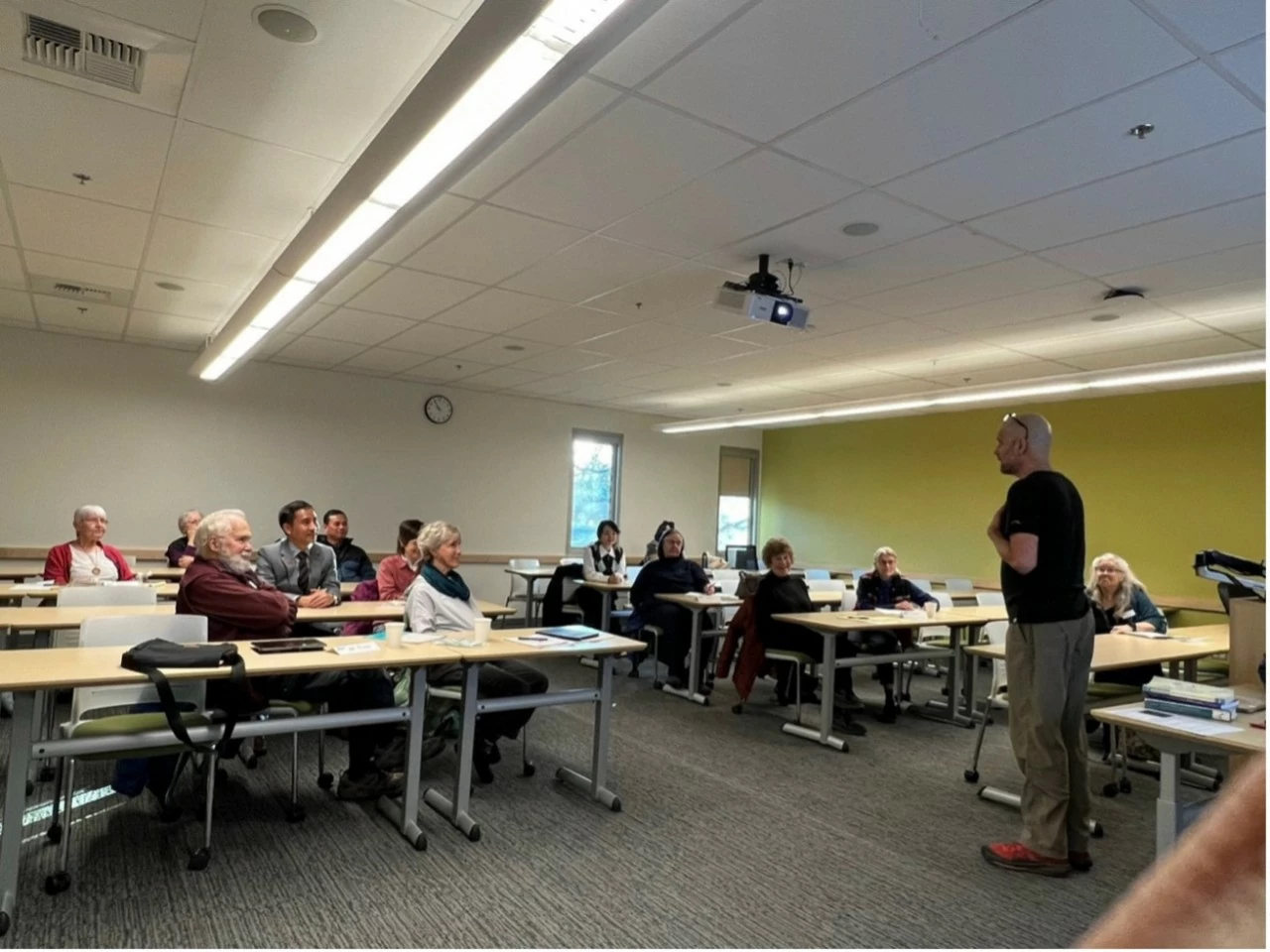 |
| A literature class for the community at UAA. There are 90-year-old students participating in this class. |
For eight years, I have taught a series of OLÉ! courses on Russian literature. UAA supports these efforts with a small percentage of my annual workload, very similar to my involvement with the HoW. I am not a professional scholar of Russian literature, so preparing for each new OLÉ course advances my own lifelong learning and reinvigorates my more typical day-to-day teaching and research. Last year, I taught a survey of neglected texts by 19th century Russian women and Nikolai Gogol’s "The Inspector”. My students included retired professors, a nurse who served in the Vietnam War, business leaders, and a 90-year-old former neurologist. As you might guess, they are fantastic students, often surpassing my traditional-age university students in their engagement, insights, and curiosity. They are motivated by the joy of learning and sharing, and they bring a lifetime of experience to our studies.
Universities and learning communities: Mutual benefits
We often perceive universities as institutions for higher education, serving a small "elite" group. What roles and benefits do universities have in community education?
As I answer this, I look at a bronze image of Van Mieu given to me by the HoW delegation when they visited UAA. This reminds me that while I appreciate the hierarchical meritocracy of Confucian and Euro-American educational traditions, I believe schools and universities must serve more than just the “elite.” UAA conducts cutting-edge research and promotes high-level scholarship while helping our city and state, intertwining and reinforcing these strands.
At UAA, community engagement is a “high-impact practice” with many benefits. Research shows it helps motivate and retain students and professors. Engaged scholarship encourages reflection on the purpose and power of higher education. Using the community as a living classroom, we learn leadership and expand networks, enhancing career opportunities and advancing the university’s public profile.
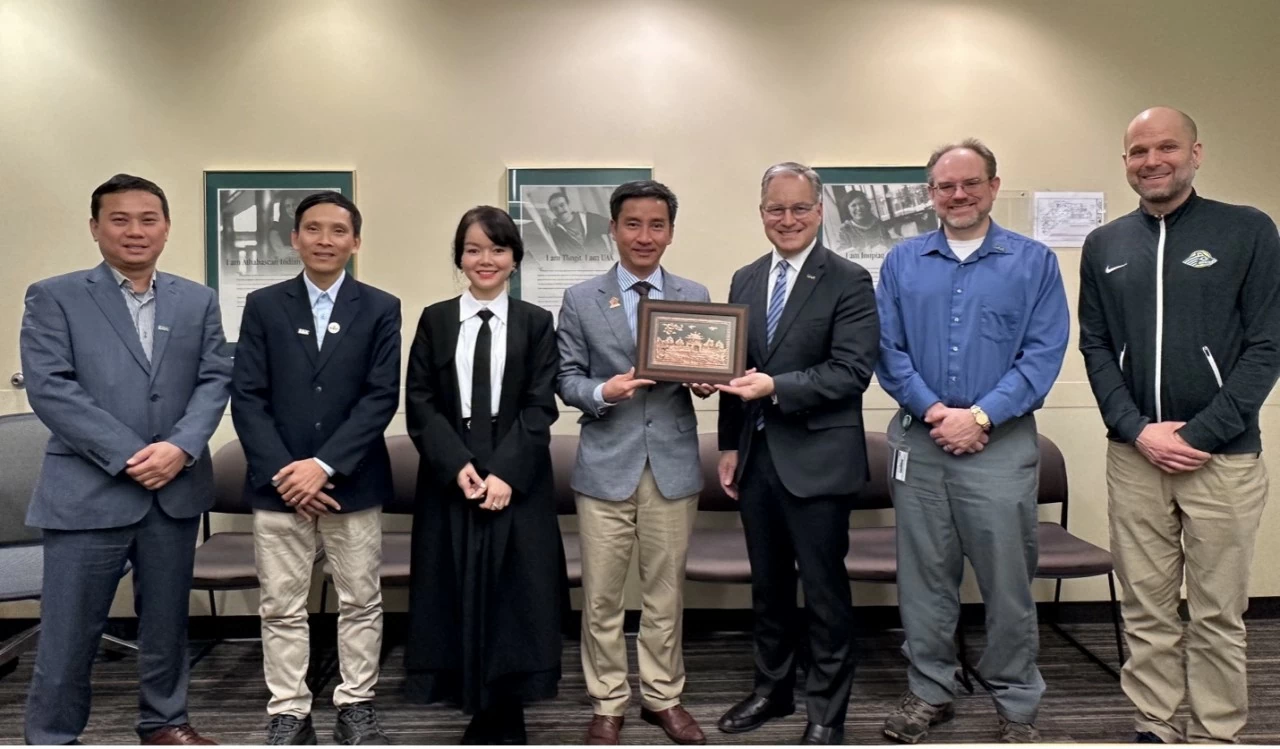 |
| The HoW delegation presented a bronze image of Van Mieu (Literature Temple) to UAA Chancellor Sean Parnel. |
My students have presented research at public forums, created educational materials for museums, promoted indigenous languages, and helped with local food security. These were some of my most meaningful teaching experiences. Many of my UAA colleagues offer courses through OLÉ!, teach English to immigrants, run health clinics, conduct collaborative research with indigenous people, redesign roads, and encourage early literacy.
To support such opportunities, UAA has a faculty-led Center for Community Engagement & Learning offering student internships and financial awards for engaged research and teaching. We also designate certain courses as community-engaged, and these courses are in high demand because students value opportunities to practice their learning outcomes in meaningful contexts and to develop important professional connections. Such community-engaged work also fosters important co-curricular skills in project management, teamwork, and communication.
When the HoW delegation visited UAA last year, we met with UAA Chancellor Sean Parnell, who talked about the notion of a university as a locus of learning and culture for everyone of all ages. Perhaps because Chancellor Parnell is a former Governor of Alaska, his vision extends well beyond our campus. He understands how increased access to educational opportunities can impact an entire society. Community engagement helps our university garner local support, attract newcomers, and inspire faculty and students, but more importantly, by climbing down from our “ivory tower,” my colleagues and I are helping to enrich the lives of all Alaskans.
Engaging in community-based education improves research productivity and motivation
Thank you for articulating such insightful views on the invaluable contributions and advantages universities accrue through their involvement in community education endeavors. I'm curious, how do you see this influencing your capacity as a university professor and as a perpetual student?
My pedagogy and research are influenced by John Dewey and Paulo Freire, who emphasize active, applied learning. I value theoretical knowledge and art for art’s sake, but working in isolation can be boring and intellectually reductive. Community engagement allows us to see the interrelationships between disciplines and seek truth in real-world contexts. University faculty know a lot about a little, but the rest of the world isn’t compartmentalized like academic disciplines, so these experiences instill in us a healthy dose of humility. I command respect in my classrooms in Alaska, but in rural Vietnam, I know next to nothing and communicate like a small child. I become a learner first and a teacher second. Such a “beginner’s mind” perspective may be a little uncomfortable for many academics, but is ultimately immensely refreshing-and inspiring.
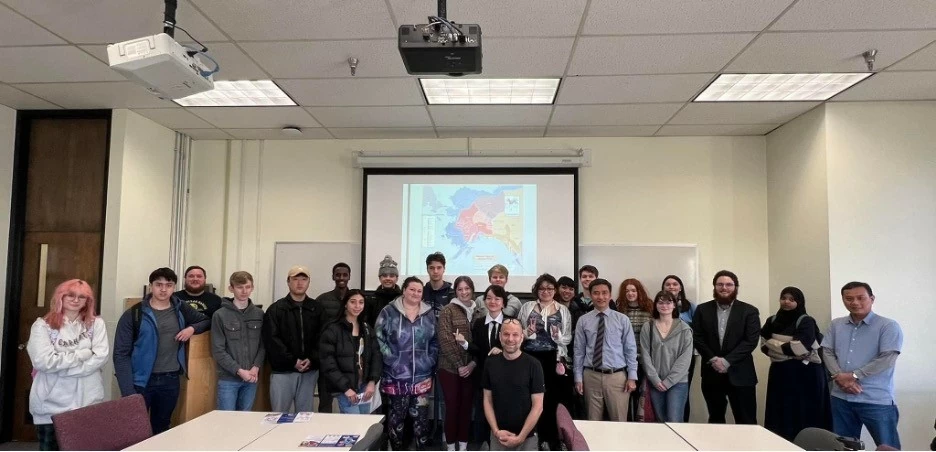 |
| The HoW delegation participated in an exchange on community engagement experiences with students from the Department of Creative Writing of the UAA . |
Community-engaged teaching and research advances our scholarly agendas by uncovering new applications, inputs, and opportunities. Involving the community in research amplifies its impact and can realize additional sources of funding. Research and teaching projects that recognize community expertise and draw on transdisciplinary perspectives are especially important in postcolonial contexts like Alaska, where indigenous knowledge has too often been dismissed. Learning basic Vietnamese has informed how I help students improve their writing in English and contributing to an important educational effort in Vietnam sheds new light on my longstanding research interests in rural, postcolonial, and place-based education in Alaska, deepening my understanding of important concepts like cultural identity, hybridity, and resilience. We often think of community-engaged education as being locally focused, and it frequently is. However, the entire world truly offers opportunities to connect and promote lifelong learning for everyone involved.
Engaging with the HoW and OLÉ makes me feel both humbled and honored, humbled because these experiences show me how much more I have yet to learn and honored because they remind me that, at core, academia helps humanity on its unending journey of discovery and growth. What could be more motivating?
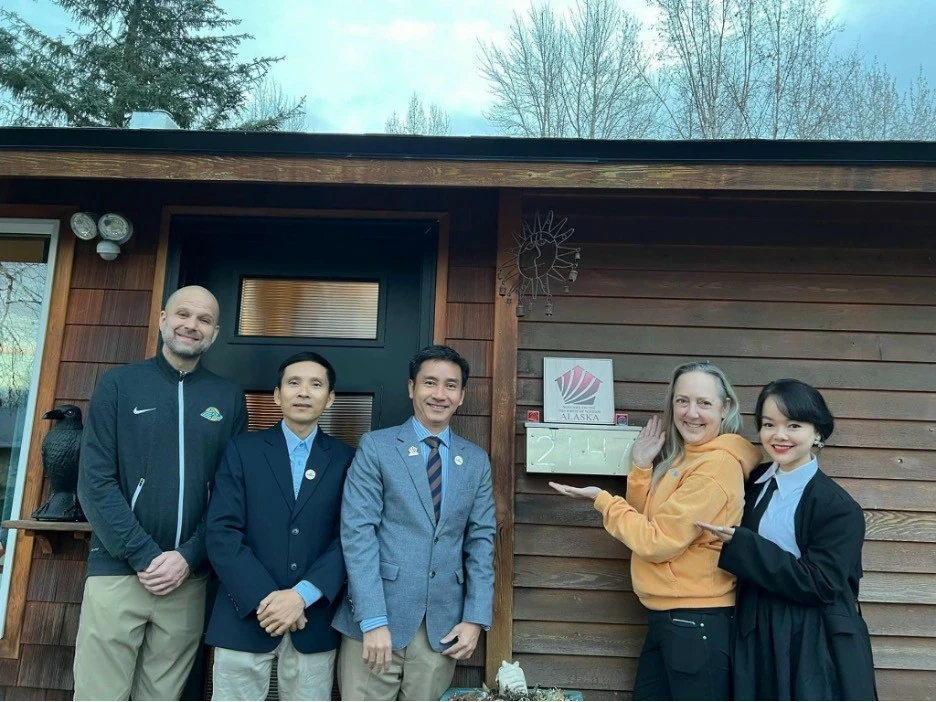 |
| The HoW delegation took a photo at the launch of HoW Alaska. |













